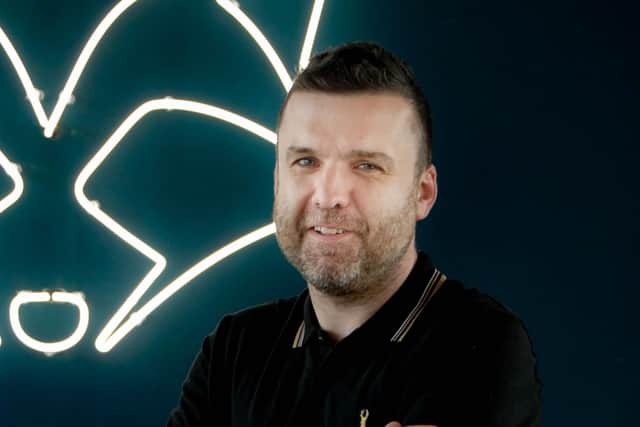Comment: Technology plays vital role in recovery of Scotland’s hospitality and tourism sector
In the hospitality and tourism sector, the adoption of new technologies has been mixed. Two years after the first lockdown was introduced in Scotland, effectively shutting the tourism industry, hoteliers are optimistic following an uptick in guests. Booking.com recorded one of its best months on record for bookings in February and at RoomRaccoon we also recorded cancellations in Scotland to be down 200 per cent in March compared to January of this year.
However, the industry is still very much under pressure to return to pre-pandemic occupancy levels and increasingly smart technology will continue to play an important role in streamlining business processes for Scottish hotels. Challenging times have catalysed an age of digital disruption and it would be a mistake to think this was a passing trend. The hotel sector has made major moves to improve its systems in the last two years and new and improved technology is here to stay.
Advertisement
Hide AdAdvertisement
Hide AdAutomating front of house tasks such as bookings, check-ins, payments and special requests to back of house admin such as accounting, invoicing, ordering and auditing can save time and cost and ultimately allow business owners more time to improve guest experience. As well as the financial reward, implementing cloud-based systems over the pandemic also meant that hotel managers could manage operations remotely, working to meet guest expectations as they evolved.
Another major benefit of improved smart tools is that hoteliers can generate more revenue. For instance, by implementing AI software that can understand supply and demand at source, hoteliers can make sure they have a dynamic pricing strategy that considers fluctuating demand to maximise revenue per available room. By considering occupancy levels, past performance data, industry trends and room sell probability, yield management can make sure that businesses are generating the best possible rates across all sales channels.
For independent hotels in particular, access to automated technology plays an important part in making sure that thousands of pounds in potential revenue are not lost.
Occupancy rates can also be increased through a tactical approach to upselling. Traditionally the responsibility to “upsell rooms” lies with hotel receptionists when a guest arrives for check-in. However, the problem is that by this point, it is often too late. Reception is under pressure to reduce mounting queues and guests want to get to their rooms as quickly as possible. By driving upsell of room categories between booking and arrival through automated technology, hoteliers can significantly increase availability and stock levels and therefore increase the chances of securing a full occupancy on any given day.
As we approach the summer season, both domestic and international tourism are set to make a major comeback with travellers looking to make up for lost time. In an age of digital transformation, it is no longer enough for hoteliers to rely on word of mouth to sell rooms. Increasing visibility online is the best way for hotels to improve the chances of securing full capacity at the best possible rates.


When it comes to online travel agents (OTA), making sure you are reaching a broad audience plays an important part of targeting a variety of travellers. A successful OTA profile with attractive imagery and well managed reviews can go a long way to increasing the attractiveness of a property. But it is becoming increasingly important that hoteliers can also build a strategy that puts them front and centre of online search to drive direct sales.
Many independent hotels still have an online sales strategy that solely relies on OTAs for sales and therefore are having to pay for chunky commissions. Developing a balance between distributing with OTAs and driving direct sales via digital marketing can help hoteliers get the best price for rooms as well as create a more meaningful direct relationship with guests. Tools like Google Hotel Ads can help properties reach a larger audience and are also often cheaper per conversion.
As well as an obvious shift in the way that visitors travel, expectations from guests have also changed over the last couple of years. Customer-facing and in-room technology has played an important role in making sure that guests have access to the service and experience that they need and want in an ever-changing landscape. From interactive online check-in to in-room chatbots, once “nice to have” technology is now making a major impact on hotel service levels, relieving pressure off front desks at busy check-in periods.
Advertisement
Hide AdAdvertisement
Hide AdIt is no secret that the way we store and use data, across every industry, is also evolving at a rapid rate. Understanding the data hotels have available to them can dramatically impact decision making and improve guest experience. For example, digitising guest profiles and feedback means that marketing can be more targeted, experiences can be personalised and opportunities for upselling can be actioned before it’s too late.
The way in which technology is embedded into the hospitality sector has most definitely been fast-tracked over the past couple of years. Early adopters will be better equipped to attract more customers at better rates. Technology will only advance and in times of economic uncertainty, it’s essential that hoteliers seize the tools available to them.
- Steven Reffin, UK account manager at RoomRaccoon UK
Comments
Want to join the conversation? Please or to comment on this article.